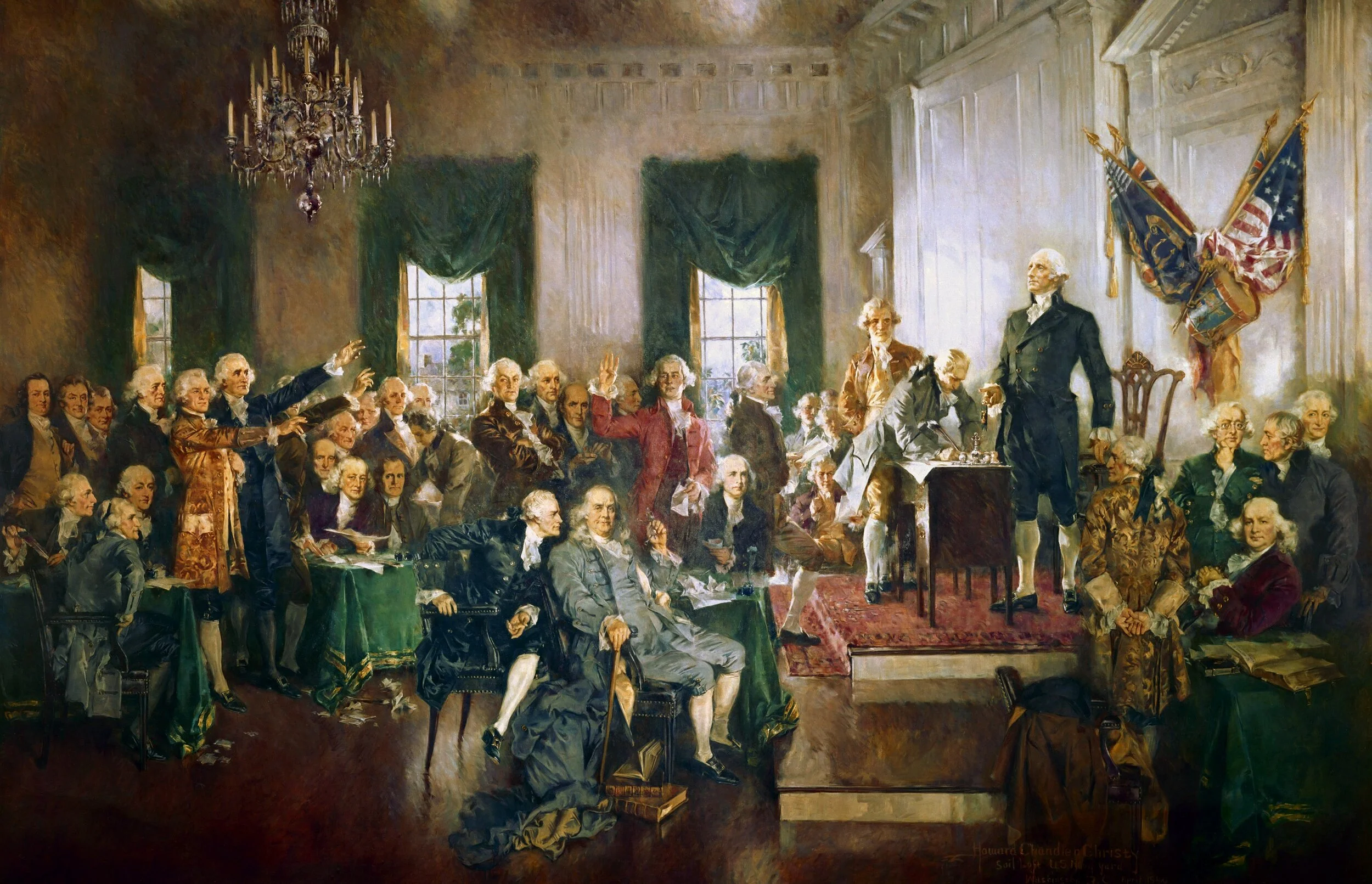Rights & Duties in Restive Times
/America gained it independence because a generation of our forefathers rebelled and defied authority. If we honor their actions, we must recognize that standing up to tyranny can sometimes be necessary. Below are some activities that can be the right or the duty of citizens when they are pushed beyond their limits.
Demonstrating & protesting
The Constitution prohibits Congress from abridging citizens’ freedom of speech and peaceful assembly, or their right to petition the government for a redress of grievances. That adds up to a right to gather in crowds and to make noise, and even to be disruptive. The founders didn’t create this right. They only acknowledged that it is a basic human right, prior to and outside of the Constitution. Strangely, even though freedom of assembly is upheld in the Constitution, you can still get arrested by local police for obstructing traffic. Since 2020, state laws criminalizing political demonstrations have increased. But protest is a valid form of action when tyranny prevents orderly life.
Disobeying orders
Have you ever thought about the potential for mass death that is posed by the world’s nuclear arsenals, and hoped that if the order to launch missiles were ever given, the man with his finger on the button would refuse? Take heart. It happened, and he did refuse. In 1983, a “Launch missiles!” order was given and the world was seconds away from devastation. But one man, on receiving the order to fire, refused. That man was a Russian military officer named Stanislav Petrov. His disobedience saved millions of lives. He was a good citizen.
Defying unjust laws
Goya: The 3rd of May, 1808
Only in the case of very unjust and immoral laws is disobedience justified. But very unjust and immoral laws sometimes exist. And that means disobeying the law can sometimes be the right thing to do. In the 1850s, following the Supreme Court’s awful Dred Scott decision, it became obligatory for any American citizen to capture any black person and return them to slavery. This law applied equally in the free states where slavery didn’t exist. The Underground Railroad had existed since the 1830s, and was mainly managed by escaped slaves. But the white northerners who helped the escaping slaves were breaking the law. I think they were right to do it. A second example is the White Rose – a secret organization of German college students who fought against the Nazi regime until they were captured and beheaded. The New York Times editorialized some years ago that breaking bad laws is a way to strengthen democracy: “Disobedience to bad laws can sometimes jolt democratic processes into motion. Which strengthens one's hope for democracy more — the behavior of the Negroes in Birmingham who broke municipal ordinances when they staged their protest marches, or the behavior of the police, using dogs and fire hoses to assert their legal authority?”
Dissenting
I’m going to be a bit hard on this one. Thomas Jefferson supposedly said, “Dissent is the highest form of patriotism.” Other scholars say Jefferson never said it. Whether he did or not, dissent is definitely a thing of limited value. Once a decision has been made and the community has spoken, dissent stops being a virtue. If the community decides everybody will drive on the right side of the road, and you dissent by driving on the left, you’ll impede traffic and cause accidents. That’s bad, and not a virtue at all. Faced with a community decision that you don’t like, the citizen’s duties are to either accept it and keep your dissenting views to yourself, or move to someplace where they do it your way.
Committing Sabotage
Sabotage is the act of damaging or destroying machinery or equipment or property in order to stop a harmful process. The word derives from “sabot,” the name for wooden shoes that French workers wore in the 1700s and would sometimes throw into the gears of machinery to ruin it. The meaning of the word has broadened to include labor strikes and other political actions that impede an unpopular process. Should the US or its allies have bombed German extermination camps during World War II? The argument in favor says that people were dying by the thousands everyday. If the camps had been destroyed by bombing, the Nazis’ extermination process would have been halted. Historian David Wyman has written that America’s failure to sabotage the German camps, or perhaps just the railroad lines leading to them, was a betrayal of the Jewish people. The counter argument says that the best way to rescue the Jews was to win the war, and the best way to do that was to fight the German army and damage German munitions factories.
Assassinating a Tyrant
Murder is a crime and a sin, and decent, law-abiding people know it. Killing a well-known political figure is certainly a kind of murder. And yet, tolerating a great evil might be an even greater wickedness. It is a complicated idea, so to explore it in further detail click here.
Think:
What historic acts of defiance and civil disobedience do you think were justified?
What is the difference between a justified act of defiance and an unjustified one?









